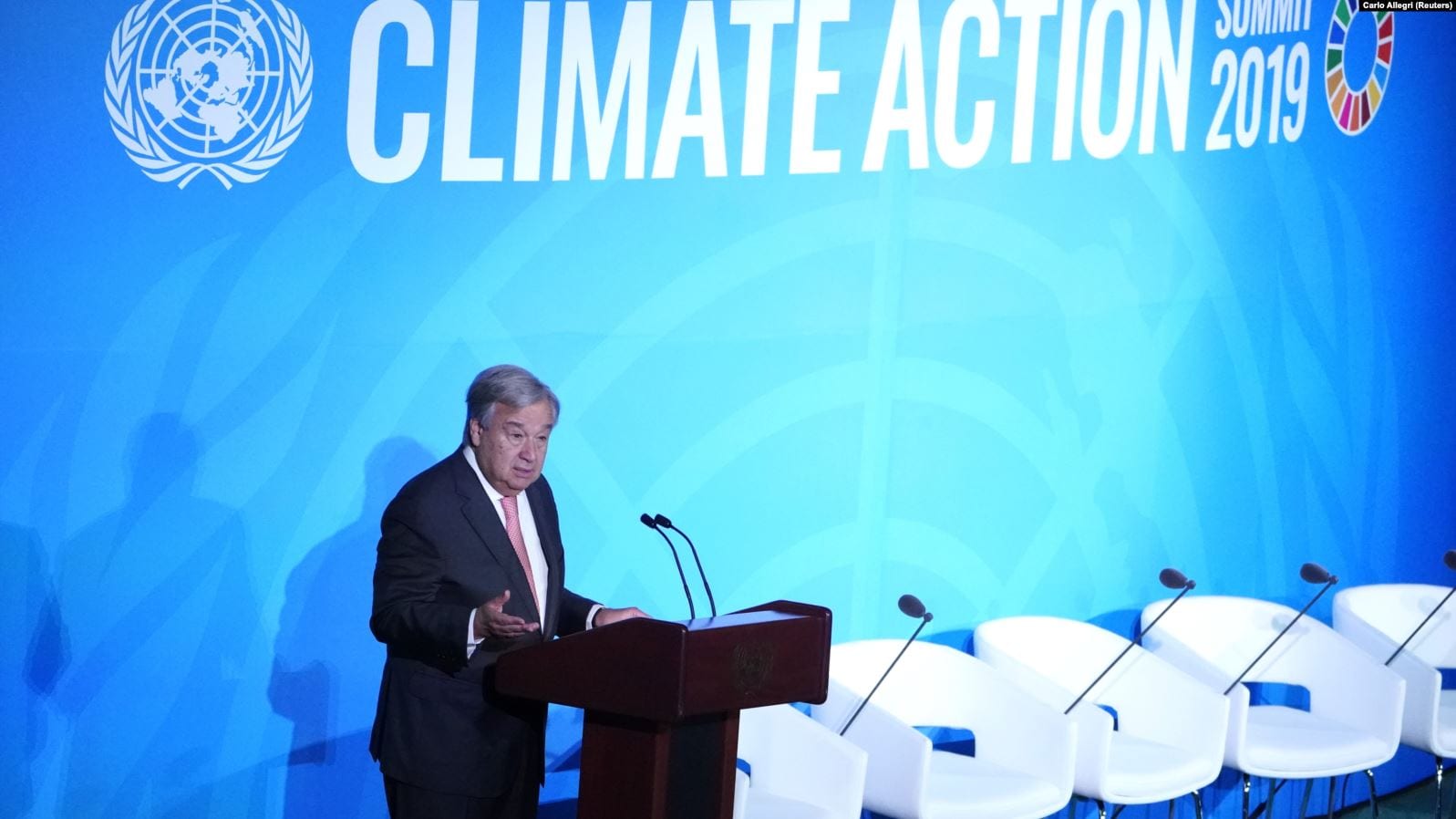In September, the United Nations Secretary-General convened a Climate Action Summit to mobilize governments, businesses, and civil society organizations to enhance global action and address the undeniable threats from climate change. In his opening statement, UN Secretary-General António Guterres reiterated that:
“[t]he best science, according to the Intergovernmental Panel on Climate Change, tells us that any temperature rise above 1.5 degrees will lead to major and irreversible damage to the ecosystems that support us.”

https://www.rferl.org/a/world-leaders-gather-in-new-york-for-un-climate-summit/30179542.html
Current projections of warming exceed 3 degrees Celsius by the end of the century and expect less than 12 years until irreversible damage: our house is on fire. What does that mean for humanity? The devastation of key ecosystems is destroying the Earth, and these events have fundamental impacts on the attainment of a range of human rights and on public health.
It is undeniable that climate change has serious effects on individual and population health: extreme weather events, such as droughts, increased precipitation, and coastal flooding have tangible impacts on the spread of communicable diseases and the increase in non-communicable diseases.
Both vector-borne and water-borne infectious diseases are highly sensitive to the changing weather patterns associated with climate change. For example, increased temperatures contribute to the proliferation of important disease vectors by lengthening transmission seasons and expanding the geographical range of the diseases they carry. It is predicted that the Aedes aegypti and Aedes albopictus mosquitoes – the principle vectors for Dengue Fever, Chikungunya, Yellow fever, and Zika – will increase in number and in geographic range by the 2030s.
Geographical spread of disease is not limited to vector-borne diseases. The increased stress put on water resources by climate change, through increased or unpredictable levels of precipitation, also contributes to the geographical spread of diarrhoeal diseases. Heavy rainfall and contaminated water can increase the incidences of diseases such as cholera, E. coli infection, and typhoid.
Extreme weather events can have direct and indirect consequences in both developed and developing countries. For example, in 2018, 93 people died in Quebec, Canada from an unexpected heat wave which most impacted the elderly and disabled. All around the world, particularly in low- and middle-income countries, climate change is creating more frequent and severe droughts and floods that in turn have devastating impacts on food security and water supply in both rural and urban settings. This not only contributes to malnutrition, but can also have devastating impacts on families and communities whose livelihoods depend on agriculture.
While climate change is gaining attention around the world, its link to health is insufficiently addressed in international legal instruments. For example, in the 2015 Paris Agreement only acknowledges health once:
“…Parties should, when taking action to address climate change, respect, promote and consider their respective obligations on human rights, the right to health…”
This weak connection is also exemplified by the lack of uniformity on how – and even if – countries include health considerations when establishing their Nationally Determined Contributions (NDCs). NDCs, considered the “heart of the Paris Agreement”, were established to ensure the long-term goals to adapt to the effects of climate change. According to Article 4.2 the Paris Agreement, each party must “prepare, communicate and maintain successive” NDCs, which must include domestic mitigation measures to achieve the established objectives.
There is no specific template for NDCs, and there currently exists great variation on how health is included in countries’ reports. Some countries, such as the United States, do not mention “health” at all in their NDC. Others, such as Canada and Pakistan make a cursory reference to “health.” A few countries such as Uganda however, include an extensive analysis of the health considerations in their NDC reports. In Uganda’s NDC, “health” was identified as a “priority sector” and the report included “priority adaptation actions” such as “conducting vulnerability assessments of the health sector to climate change impacts” and “improving early warning systems for disease outbreaks”.
The weak reference to health in the Paris Agreement and the lack of uniformity of health considerations in the NDCs is a missed opportunity for the international community to acknowledge the connection between climate change and health as well as the co-benefits of addressing them together. To address climate change, the international regime for environment and climate change must give way to more coordination between spheres that have the potential to co-benefit each other. In order to address the public health challenges associated with climate change, global partnerships are needed to create an effective, integrated regime capable of ensuring health for individuals and the planet on which we depend on.



